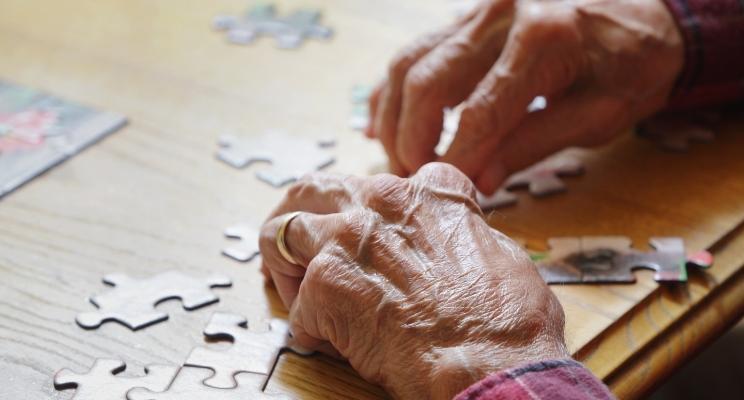
Caring for seniors requires a holistic approach that addresses their physical, mental, and emotional needs. By incorporating elements like mental stimulation, arts and crafts, physical exercise, nutrition, and transportation, you can enhance the well-being of older adults. Here are some actionable tips to help you provide comprehensive care for seniors in your life.
Mental Stimulation

Keeping the mind active is crucial for seniors. Mental stimulation helps maintain cognitive function and can even delay the onset of dementia. Encourage activities like puzzles, reading, and games that challenge the brain. Regularly engaging in such activities keeps the mind sharp and improves overall mental health.
Consider incorporating technology into mental stimulation. Many seniors find joy in learning to use tablets or smartphones to access brain-training apps and games. Online classes and virtual book clubs offer opportunities for learning and social interaction, fostering a sense of community and purpose.
For more personalized and effective mental stimulation strategies, consult a professional, such as a cognitive therapist or a specialist in geriatric mental health. They can provide tailored activities and programs that suit individual needs and capabilities.
Arts and Crafts
Arts and crafts provide a creative outlet for seniors, enhancing their emotional well-being. Engaging in creative activities promotes relaxation, reduces stress, and boosts self-esteem. Simple projects like painting, knitting, or scrapbooking can be both enjoyable and therapeutic.
Establish a routine that includes regular arts and crafts sessions. Group activities can be particularly beneficial, as they encourage social interaction and foster a sense of belonging. Community centers often offer classes specifically designed for seniors, providing a structured environment for creativity.
Consider seeking guidance from an art therapist who specializes in working with older adults. They can introduce projects that cater to varying skill levels and physical abilities, ensuring that every senior can participate and benefit from the activity.
Physical Exercise
Regular physical exercise is vital for maintaining mobility, strength, and overall health in seniors. Activities like walking, swimming, or yoga can improve cardiovascular health, enhance flexibility, and boost mood. Exercise also plays a crucial role in preventing falls and managing chronic conditions like arthritis and diabetes.
Create a balanced exercise routine that includes both aerobic and strength-training exercises. Encourage seniors to participate in group classes, such as senior fitness programs at local gyms or community centers. Group activities provide motivation and social interaction, making exercise more enjoyable.
Consulting a professional, such as a physical therapist or a fitness trainer with experience in senior health, can help develop a safe and effective exercise plan. They can assess individual fitness levels and recommend exercises that accommodate any physical limitations or health concerns.
Nutrition
Proper nutrition is essential for maintaining health and vitality in seniors. A balanced diet rich in fruits, vegetables, lean proteins, and whole grains supports overall well-being and helps manage chronic conditions. Adequate hydration is also critical, as seniors are more prone to dehydration.
Plan meals that are both nutritious and enjoyable. Involve seniors in meal planning and preparation, as this can increase their interest in healthy eating. Small, frequent meals may be more manageable for those with decreased appetite or digestive issues.
If you need guidance on creating a diet plan tailored to specific health needs, consider consulting a registered dietitian or a nutritionist specializing in senior care. They can provide valuable advice on meal planning, portion sizes, and managing dietary restrictions.
Transportation
Reliable transportation is crucial for seniors to maintain independence and stay connected with their community. Access to transportation allows seniors to attend medical appointments, participate in social activities, and run errands, all of which contribute to their overall well-being.
Explore various transportation options available in your area, such as senior ride programs, public transit, or rideshare services. Ensure that transportation is safe and comfortable, accommodating any mobility aids or special needs.
For those who may require more personalized assistance, consider hiring a professional transportation service specializing in senior care. These services often provide door-to-door assistance, ensuring that seniors reach their destinations safely and on time.
Fostering a Holistic Approach to Senior Care
Combining mental stimulation, arts and crafts, physical exercise, nutrition, and transportation creates a holistic approach to senior care. This comprehensive strategy addresses the diverse needs of seniors, promoting overall well-being and enhancing their quality of life.
By integrating these elements into daily routines, you can create a supportive and enriching environment for the seniors in your care. Consulting professionals in various fields ensures that the care provided is tailored to individual needs and is both effective and safe.
Taking these steps not only nurtures the well-being of seniors but also strengthens the bond between caregivers and those they care for. With a holistic approach, you can help seniors lead fulfilling and joyful lives, surrounded by activities and support that cater to their unique needs.
